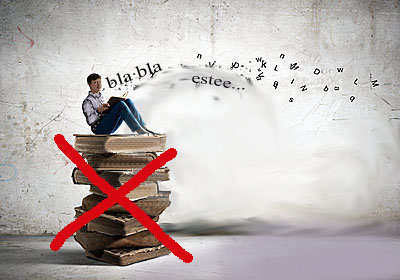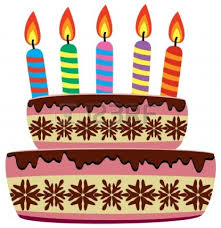As I was saying, the majority, because among the old guys (there were eleven, counting me, and I’m not from that neighborhood; I’m just in line there because my pharmacy didn’t have my medicine), there are three in opposition: one who says that, without the mediation of dissidents, the agreement constitutes a betrayal by Obama, a betrayal that will be recorded in history with words of mourning.
The others shoot back with what about the Human Rights people* in this long-awaited moment, they’re thinking about their piece of the pie; and the man, a chubby guy who looks like a lawyer, noting the lack of a quorum and all the unfriendly faces, leaves without offering anyone his place in line. continue reading
Another one is a dentist, who later they will tell me is not one of those Human Rights people, but while his cohorts debate the future of Cuban socialism, he’ll continue saying that without an elimination of the Embargo on the horizon, the agreements between Raul and Obama have been nonsense and it’s obvious that Raul is not Fidel.
And the other old guy who opposes is wearing dark glasses, is very respected by the group, and totally rejects the agreements. That’s why, in order to debate things fully, and because these guys are old, we follow Jose Marti’s old men in “Los zapaticos de Rosa**” and distance ourselves; meanwhile, there in the entrance to the pharmacy the majority continues, with the Saint Lazarus devotee as their leader, believing capitalism is already here.
“No sir, as a former military man,” some cross-eyed guy assures the man with the dark glasses, “I can tell you that the Army general has not handed the keys of the city over to the enemy. You are right when you say Fidel himself has said one thing one day and the complete opposite the next, but that’s politics. It’s the political chess game. With each new power play the scene changes. It can’t be any other way.”
“For that very reason,” insists the man with the dark glasses, “I don’t believe Raul when he says that this has been done without sacrificing our principles, and tomorrow I’m turning in my Party I.D.; I don’t want to have it on me when they let the businessman off the plane who will take charge of cleaning up the garbage, and the one who will take on the issue of transportation, and the one who’s already budgeting for the construction of two hundred thousand houses in six months, for starters, and I won’t go on because the rest you can figure out on your own.”
“Stop posing as a national oracle,” admonishes the military guy, losing his temper. And in an even worse mood, the man with dark glasses replies:
“The oracle here is still Fidel, and with his flaws, Raul. I abide by the law of physics. If you remove a brick from a dam, just one brick, you’re bringing about the end of the dam. Look at the Chinese, look at the Vietnamese. Tons of Chinese millionaires today. Tons, thousands. And leading the Party. The only thing missing now is what the bourgeoisie and the lackeys of imperialism call ‘democracy.’”
“In any case,” says the man dressed in bermudas and an Industriales baseball cap, “is that good or bad? Because what I want are busses that transport me, trucks that pick up my garbage, and for my family to not have to live in barbacoas [jerry-built tenements], cramped quarters.”
“But not by those means, because that would be the end of socialism,” objects the military guy, agreeing with the man in dark glasses.
“But what’s more important: the means or the end result?”
That came from one of the old guys who hadn’t spoken yet, apparently someone of authority in the group and who addressed the crossed-eye guy and the soldier as “my brother.” His summons surprised the one with the dark glasses:
“So then, for you principles don’t matter. Very strange considering your history. A guy like you.”
“I trust Raul,” says the historical one. “You were talking about the Chinese, but we aren’t Chinese here. And if it’s necessary to be Chinese, we’ll become Chinese. And if we have to do what the Chinese haven’t done yet, we’ll do that, too. Socialism hasn’t worked at all anywhere in the world, and Raul, who’s in touch with the world, has seen this. That’s why he’s done this, so get ready for what’s coming.”
Since the historical one seemed to know a lot about what was coming, the group got quiet, willing to listen. The quietest one was the man with dark glasses; but, suddenly, as if coming to his senses and more interested in his present than in the future, he unexpectedly asked:
“And what about me? You know me; the sixty-four awards, seals and medals I have at home say something, the son of mine who died in an internationalist war, and everything else you know. Outside of Cuba, I could live like a king. So tell me, can he who has suddenly made it all clear, at the end of his life, stand to see us back where we were when we started this thing?”
Except for the man with the dark glasses, everyone sided with the man in bermudas and baseball cap. Rectifying things is the work of wise men, he was saying. There was no agreement, however, on whether or not Raul would take the necessary steps to dismantle the system, whatever those were, without causing damage, doing it without seeming to, one step here, another there, taking his time.
“But, what about me?”
“Raul doesn’t have time to do things slowly,” said a fragile but energetic-for-his age doctor who had intervened twice before.
“And what about me?”
Nobody paid attention to the one in dark glasses, he kept repeating his “what about me’s” but the people ignored him. Their attention was on the argument between the doctor and the military guy.
“The Army general has all the time in the world,” the military guy insisted angrily. The one in bermudas and baseball cap backed him up:
“These people last a thousand years. Gallego Fernandez is 100 and look at him still standing stronger than a light post.”
“No sir, Gallego isn’t 100 yet,” specified the historical one.
The doctor explained himself, appealing to their common sense:
“I’m saying that Raul doesn’t have time to waste making changes one baby step at a time; not in the crushing conditions the country finds itself now; whatever he is going to do, he has to do it quickly, he’s opened the gates and that’s very delicate, he no longer has the outside enemy as the excuse that allowed him to keep the non-conformists here on the inside in their place, and they will become more courageous. Without stopping to think about whether he hurts one or one million, he has to do it like Fidel did when, suddenly, at a burial he said that when I said digo [I say] it was really Diego, and in the process turned us into socialists. In fact, that was also on a 16th day of the month. Just like that, the way you rip off a Band-Aid. That’s the kind of time he doesn’t have.”
The historical one didn’t understand the objection. He spoke for everyone:
“Everyone has their methods, and in the one I’m talking about, Raul would avoid responsibility and end up as the one who corrected Fidel’s mistakes. For starters, this is about Cuba, not the conceited fame of anyone. Do you remember the last interactions between the Godfather and his son, Mike Corleone? Imagine Diaz Canel acting like he’s talking and, behind him is Raul—who has resigned, alleging that he was really really sick but in reality he’s healthier than all of us—speaking for comrade Diaz Canel. We are, as my pal and neighbor used to say” — then he signals for the man with dark glasses — “in the very moment when the Chinese, after wasting thirty years making cement in the back yard with a cauldron and wood fire as if they were frying pork rinds, enter history. Talk to the Chinese about those lost years. In the same way, anyone here today who has felt deceived, will applaud later.”
It wasn’t a finished debate. There was still hardly any blood. Someone was saying that maybe a Chinese method was coming that didn’t use Cuban capital, recalling the economic philosophy of the bonsai*** set forth by Murillo; for his part, the dentist continued to repeat like someone obsessed, that without an elimination of the embargo, Obama and Raul’s agreements were nonsense, even more so considering that not so long ago Raul had claimed that we could withstand the embargo 55 more years.
Then the doctor, perhaps fed up with that guy’s lamenting, raising his voice and confronting him, said that the plural in Raul’s “we could” was an exaggeration, that Raul hadn’t experienced one second of the embargo, that during 55 years Raul had woken up in air conditioning, that he had sat in an air-conditioned car, walked into an air-conditioned office, gone to bed with air conditioning and had only gotten sweat on his shirt when he went out to review a military unit, catching some sun on the way in order to synthesize his vitamins, or when he went hunting.
And that’s when it started. The military guy demanded the take back his words; audacious, the doctor refused; and while those two old men were being subdued by the group, I heard a woman who had been cleaning her upper dentures with a nail file say to an old man who had just arrived, as she put her teeth back in, energetic and ready to interject:
“With these changes that are coming, I would like them to do what the Chinese still haven’t done; if for no other reason than for the people here to be able to say what they think without things like this happening.”
This post by Rafael Alcides was hosted on Regina Coyula’s blog.
Translator’s notes:
*This phrase does not refer to any specific organization; the expression “human rights person/people” is widely used by Cubans to refer to anyone engaged in any way in working for democracy and human rights in Cuba.
**”The Little Pink Shoes” is a very famous poem in Cuba by José Martí. It tells the story of Pilar, a privileged little girl, who while playing on the beach sees a poor little sick girl with cold feet and no shoes. Pilar gives the girl her shoes, telling her, ‘Oh, take mine, I have more at home.’
***Marino Murillo is Cuba’s Minister of Planning and Economy. The late Cuban economist Oscar Espinosa Chepe, a regime opponent, coined the term “bonsai businesses” to refer to the types of small private businesses now allowed by the regime: bonsai, of course, are very small, and are subject to constant “trimming” to make sure they are not allowed to grow to any significant size.
Translated by: Kathy Fox
10 January 2015















